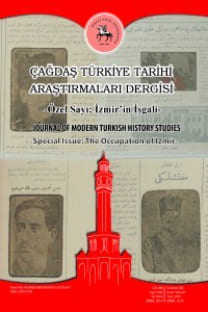Atatürk ve Aydınlanma - Düşünsel Temelleri ve Gelişimi
Bir yanda kaderci, geleneksel ve var olanla yetinen, eskiyen sistemi yenisiyle değiştirmek yerine, eldekini gerektiği kadar değiştirerek koruyan, statükocu Doğu toplumu... Diğer yanda insan merkezli, akıl ve bilime önem veren, daha iyiyi bulmak adına düşünceler üreten, gelişmeye açık Batı toplumu... İşte bu çelişkiler içerisinde, Doğu toplumunda yetişmiş; ancak üyesi bulunduğu toplumu, içinde boğulduğu karanlıktan, diğer toplumun geliştirdiği yöntemleri kendi toplumunun gereksinimleri doğrultusunda uyarlayarak kullanan ve aydınlığa kavuşturan bir lider... Kemal Arı’nın “Atatürk ve Aydınlanma” adlı kitabında, bu liderin, Atatürk’ün devrimlerinden etkilendiği Batı aydınlanmasının Sokrates’ten itibaren yaşadığı süreci, çağdaşlaşma çerçevesinde Doğu-Batı çelişkisini, Türk toplumunun Atatürk tarafından aydınlığa kavuşturulmasındaki kilometre taşlarını, alışılmışın dışında bir anlatımla, parça parça değil, resmin bütününü görerek okuyoruz
Anahtar Kelimeler:
Atatürk, Doğu-Batı Çelişkisi, Aydınlanma
On one side; fatalist and traditional, Eastern society which uses the current system with some changes when it is necessary, rather than changing the system which is getting older. On the other hand, human centered, innovative; Western Society which cares about science and intellect and produce ideas for the sake of finding better things. Within these conflicts, a leader who was raised in eastern society but enlightened his country from the darkness, by using the methods of the other society according to the needs of his society. In Kemal Arı’s book, “Atatürk and Enlightenment”, we read; process of the western enlightenment from which Atatürk was affected by during revolutions, beginning from Socrates, East- West conflict within modernization process, and mile stones of the enlightenment of the Turkish community by Atatürk, with an unusual expression by seeing the whole picture rather than pieces
Keywords:
Atatürk, East- West Conflict, Enlightenment,
- ISSN: 1300-0756
- Yayın Aralığı: Yılda 2 Sayı
- Başlangıç: 1991
- Yayıncı: Dokuz Eylül Üniv. - Atatürk İlkeleri ve İnkılap Tarihi Enst.
Sayıdaki Diğer Makaleler
Alain DİECKHOFF–Christophe JAFFRELOT, Milliyetçiliği Yeniden Düşünmek Kuramlar ve Uygulamalar
Türk Deniz Ticareti Tarihi Sempozyumu 2010 (9 Nisan 2010)
1960-1980 Dönemi Türk-Arap Ekonomik İlişkileri
Yeni Alfabenin Kabulü Sonrası Mersin’de Açılan Millet Mektepleri ve Çalışmaları
İbrahim BOZKURT, Birgül BOZKURT
Antikçağ’dan Günümüze Tarih Tasarımları
Kıbrıs Türk Milli Mücadelesi (1914-1958)
“En Büyük Tehlike” Broşürü ve Buna Bağlı Olarak Turancı Akımların Kamuoyunda Tartışılması
İzmir Karantina Teşkilatının Kuruluşu ve Faaliyetleri (1840-1900)
Arşiv Belgeleri Işığında İkinci Dünya Savaşı Sürecinde Türkiye’de Mülteciler ve Esirler Sorunu
